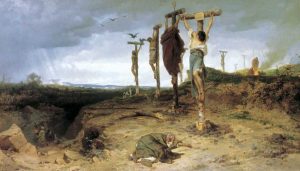
Skeptics often like to criticize the Bible for not addressing issues they think it should’ve addressed (and often for addressing issues they would prefer it didn’t). Typically, however, it is more of a case of the issue not being answered as plainly as they would like. I get it; we all like things to be spelled out simply so we can have our answer quickly and move on. I get frustrated at times with some of the codes I have to use in engineering when I read a page that is supposed to be addressing a particular issue I’m working through, and there’s no single bullet point that says “if this, do that.” With project deadlines and impatient clients, the last thing I want to do sometimes is wade through hundreds of pages of code provisions, find some nuanced recommendations and dire warnings in the commentary, correctly interpret everything, and try to implement a solution that is safe, justifiable, and not over the top (knowing that almost anything I come up with can or will be second-guessed by someone). But, do you know what? If structural design was just picking components out of a book without needing to understand the concepts behind those choices, engineering wouldn’t be needed. In fact, “engineering judgment” presupposes an understanding of the concepts involved so as to make a reasonable choice because the engineer can “connect the dots” and foresee the consequences of a certain choice even when there aren’t explicit guidelines. So what about the Bible and slavery? Is the Bible wrong for not clearly condemning it? Or are the concepts there if we take the time to investigate? Let’s work through that today.
